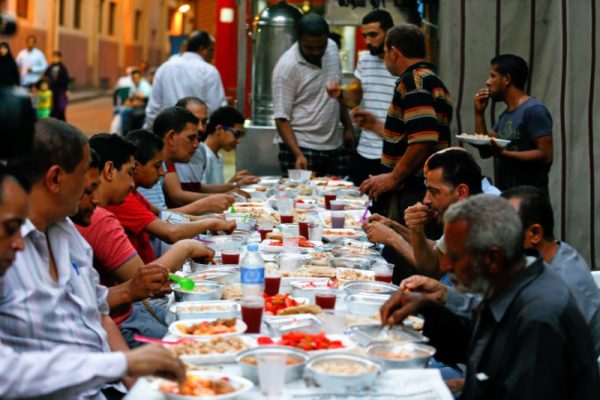Such inter-communal meals are held every year in Egypt, whose Copts are the largest Christian minority in the Middle East. But they took on more resonance this year after a spate of ISIS attacks on Copts meant to stoke sectarian divisions.
Dawoud Riyad, a middle-aged Christian man, set up tables in a street near his Cairo home last week, serving free home-cooked meals to hungry passersby when it was time for them to break their fast for the iftar evening meal.
“They invited me and my kids, and I was surprised. They laid the table out on the street with no difference between sheikhs, Christians or Muslims – they pulled everyone to the table to break their fast,” said Tarek Ali, a Muslim resident.
Several Christian families in Riyad’s area pitch in daily to provide the food and drink in what he calls an effort to unite people of different faiths during a holy time of year. Copts make up about 10% of Egypt’s 92 million people.
“We all live in the same square, we’re all brothers and friends, I’ve raised this man’s son (alongside my own son) and he’s Muslim,” Riyad said, pointing to a neighbour.
Ramadan this year began on May 26 and ends on Saturday.
Recent ISIS assaults on Coptic Christians in Egypt have sparked fears of a provincial insurgency in the making.
ISIS gunmen attacked a group of Copts travelling to a monastery in central Egypt last month, killing at least 29 people. That attack followed a series of church bombings claimed by militants.

















